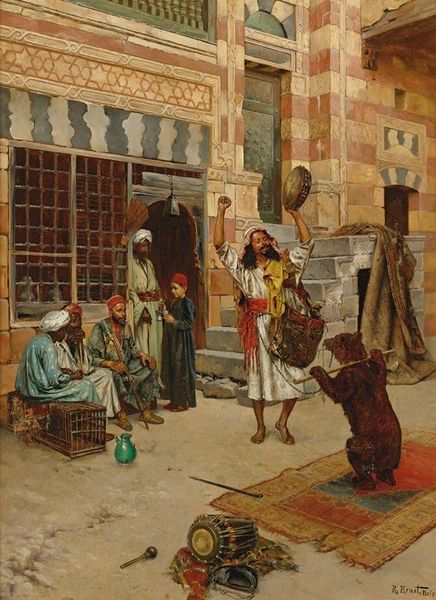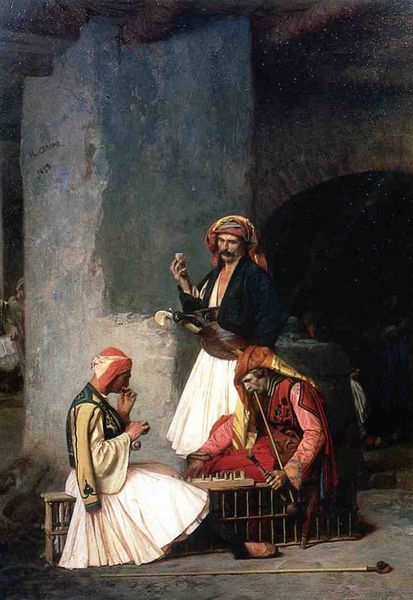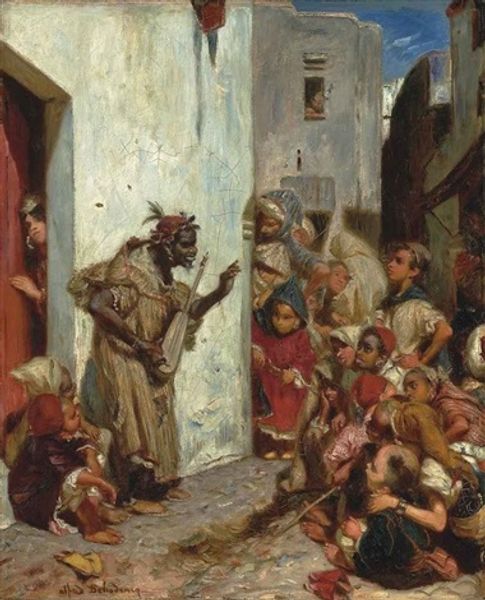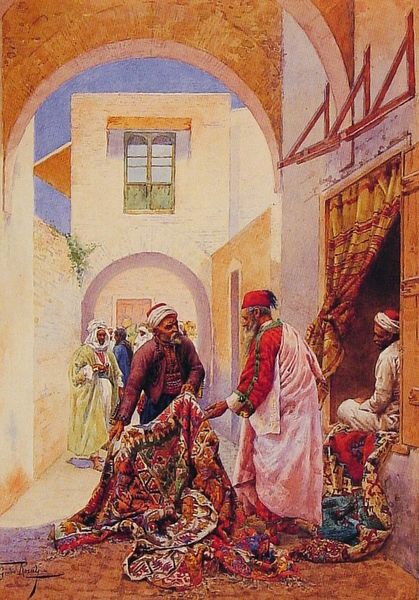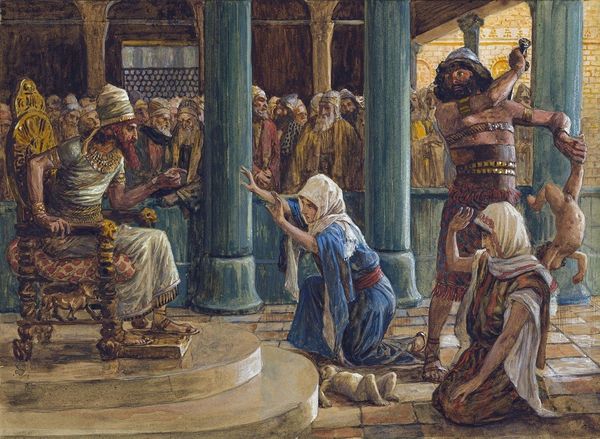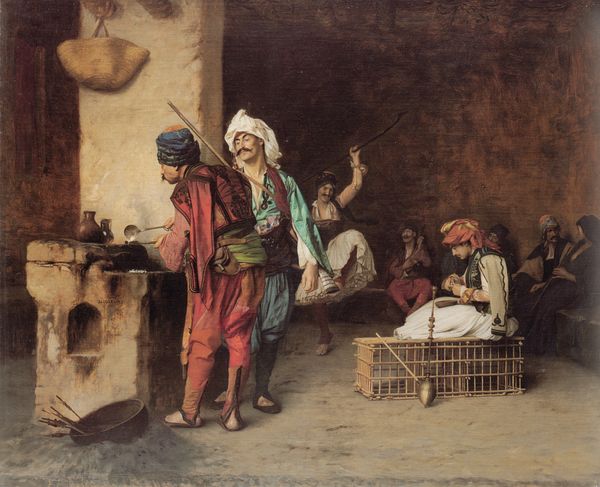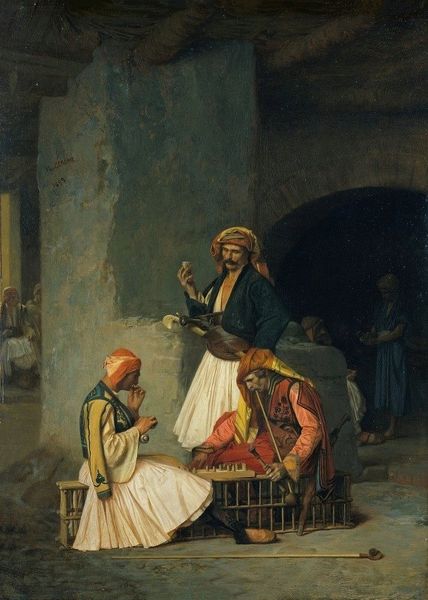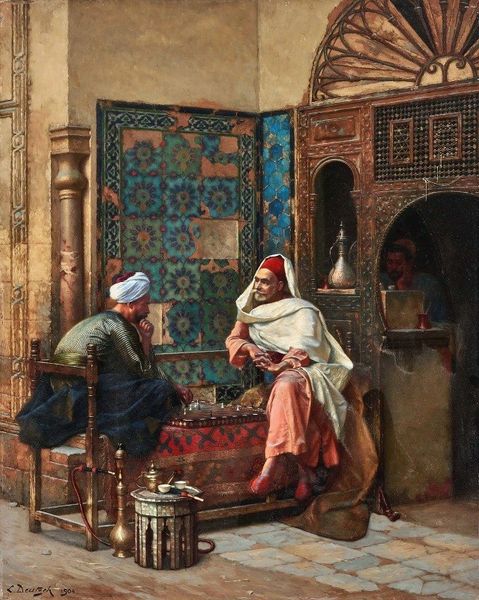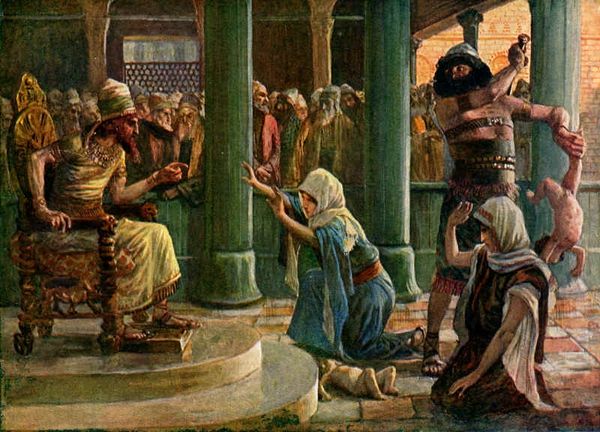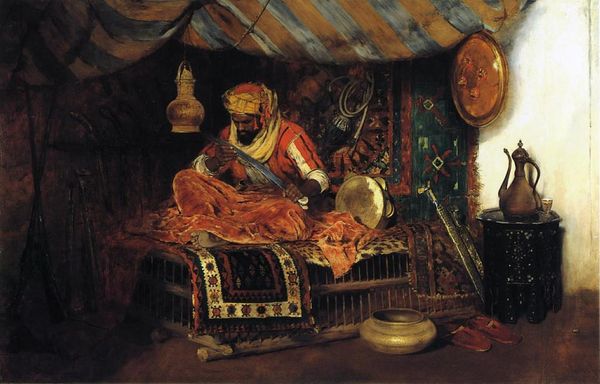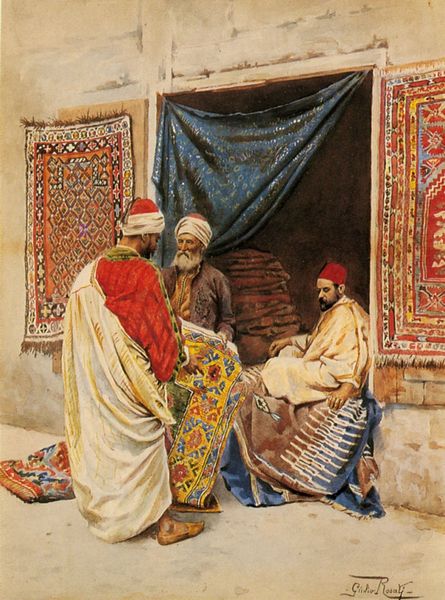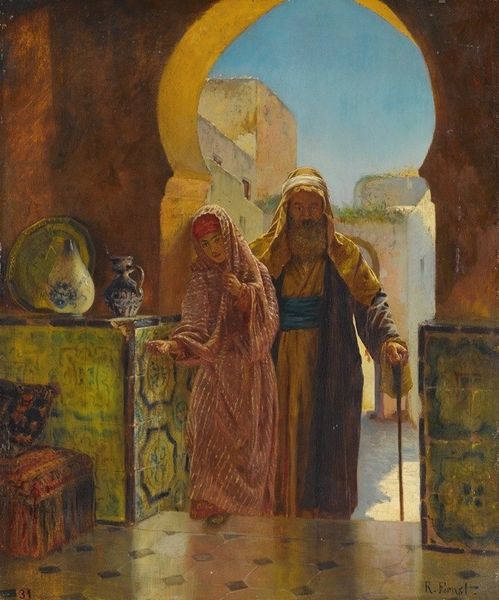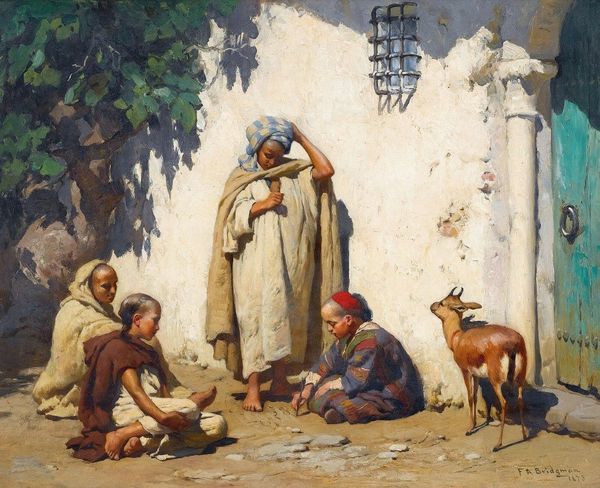
oil-paint
#
figurative
#
oil-paint
#
painted
#
oil painting
#
underpainting
#
orientalism
#
genre-painting
#
academic-art
Copyright: Public Domain: Artvee
Curator: This is "The Arms Merchant," painted by Rudolf Ernst in 1885 using oil paint. It's a captivating example of the Orientalist style. Editor: Oh, it's got this immediate hushed, mysterious feeling. The light is golden but subdued, like secrets being bartered in a hidden courtyard. I immediately get a feeling like, what’s *really* going on here? Curator: That feeling aligns perfectly with the historical context. Ernst, though Austrian, never actually visited the Middle East. So what we're seeing is his imagined version, crafted from second-hand accounts and popular fantasies. It presents a romanticized and, at times, an inaccurate view of the region. The detail is gorgeous but it’s worth keeping in mind that perspective of “othering”. Editor: Absolutely! I love the tension in that. The sheer *skill* is undeniable – look at the textures on those carpets and metalwork. You can almost *feel* them. But there's something…sterile, too. Like it’s all for show, no actual grime of real life or war. Curator: Precisely! He emphasizes detail for aesthetic effect, using elements like swords and maps to project ideas about trade and power dynamics in the East. It subtly evokes ideas about Western interest in resources from the Ottoman Empire, and other parts of North Africa. The props here feel especially deliberate. Editor: The guy holding the sword looks almost like he’s performing, or selling some heroic ideal, not just weaponry. And that other guy sitting, what’s he doing? He looks less powerful almost disinterested. There is definitely something of a staged, one-sided performance playing out. Curator: A common thread with many other paintings of the time! Works like these also reinforced popular misconceptions while sometimes unintentionally becoming documents themselves, telling a story about European perceptions more than accurate accounts of real lives. Editor: This almost seems fitting now, given that tension: to make an exquisitely wrought *document* about a false vision feels pretty complex when you break it down. Curator: I think what stays with me is that "The Arms Merchant" reminds us of art's power, not just to reflect but also to actively shape how we perceive other cultures, even if—and especially if—that image is built on fiction. Editor: For me, it’s a great invitation to check our own assumptions – and really interrogate the “romance” of other places that still holds weight for us today.
Comments
No comments
Be the first to comment and join the conversation on the ultimate creative platform.
